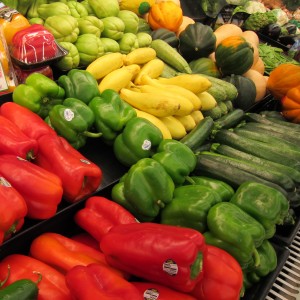 What Is Vegetarianism?
What Is Vegetarianism?
Vegetarianism is the practice of a diet that excludes meat, poultry, and fish (including other seafood). There are several variations of vegetarianism, some of which also exclude eggs, dairy foods, or other animal by-products:
- Lacto-vegetarians: Eat dairy products, but no meat, poultry, fish, or eggs
- Ovo-vegetarians: Eat eggs, but no meat, poultry, fish, or dairy products.
- Lacto-ovo vegetarians: Eat dairy products and eggs, but no meat, poultry, or fish.
- Vegans: Do not eat any animal products.
Why Do People Become Vegetarians?
There are many reasons why people choose to follow a vegetarian diet, some of which include:
- Food likes and dislikes
- Animal rights concerns
- Religious or cultural beliefs
- Diet and health concerns
- Family decision
These are acceptable reasons for choosing not to eat meat. It is important to note that in some cases, the decision to avoid meat or to be on an overly restrictive diet can be an early sign of an eating disorder, which is a negative eating behavior that affects one’s physical and mental health. If you have questions or concerns about your diet, talk to your health care provider for professional assistance.
Is It Healthy To Be a Vegetarian?
Being a vegetarian can be either helpful or harmful to your health, depending on whether you get proper nutrition. A properly-planned vegetarian diet is able satisfy the nutritional needs for all stages of life, and can significantly reduce the risks of developing high blood pressure, diabetes, heart diseases, and some types of cancer. This is true provided that you continue to eat a variety of healthy vegetarian foods, and do not substitute potato chips and candies for meat.
How Can I Make Sure That I Am Getting Enough Nutrients As a Vegetarian?
The key to a healthy vegetarian diet is to eat a variety of foods including vegetables, fruits, grains, nuts, seeds, and soy products. If the diet is not properly planned, vegetarians may not get enough vitamins and minerals that are found in dairy products, eggs, meat, poultry, and fish. These include calcium, iron, vitamin B12 and vitamin D. You also need to have enough protein. Discuss with a registered dietician or other health professionals about an eating plan that works best for you and whether a vitamin/mineral supplement is helpful for you. Below is a list of important nutrients and their sources.
- Protein: Dried peas and beans, nuts, seeds, peanut butter, tofu.
- Calcium: Leafy greens, broccoli, tofu (made with calcium sulfate), dried beans, fortified soymilk and fortified orange juice.
- Iron: Dried beans, oatmeal, spinach, iron-fortified cereals and bread.
- Zinc: Wheat germs, nuts, fortified cereals.
- Vitamin C: Citrus fruits and juices (oranges, tangerines, grapefruits), peppers, strawberries, kiwi
- Vitamin B12: Eggs, dairy products, fortified cereals and breads.
- Vitamin D: Milk, fortified soymilk, fortified cereals
Vegetarian Recipes:
- The Vegetarian Resource Group: http://www.vrg.org/


